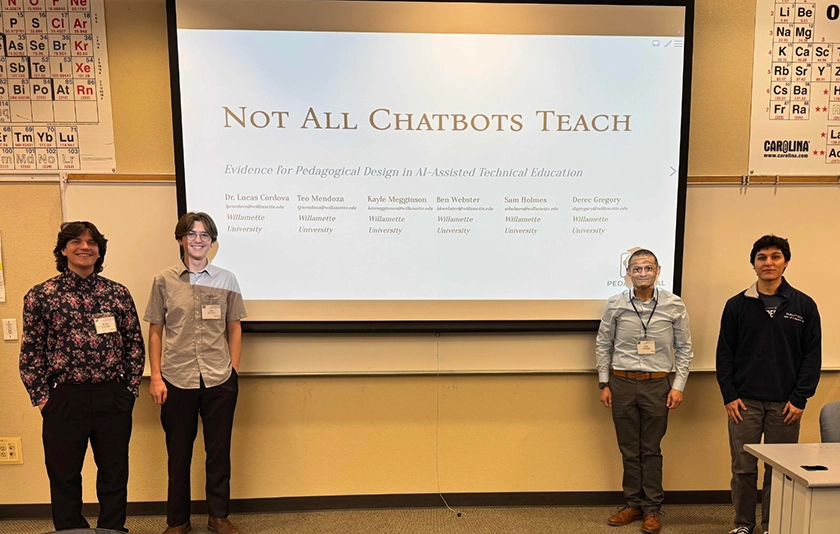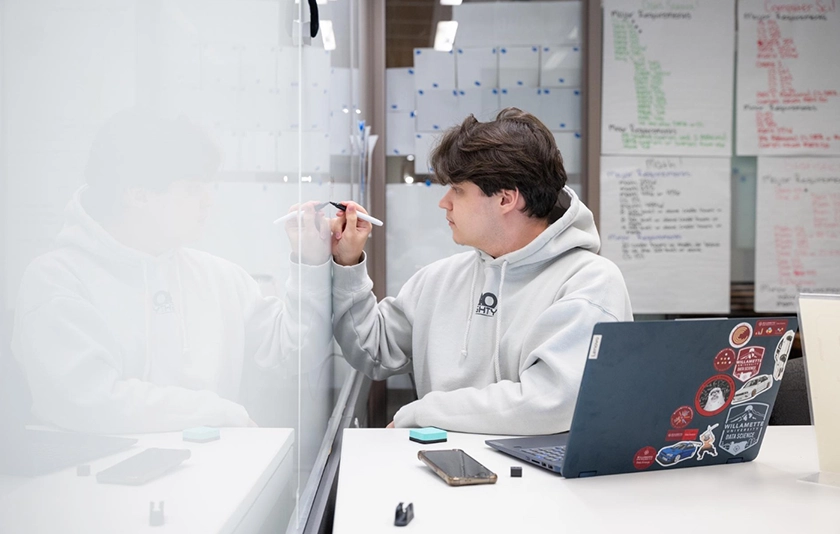A nearly $2 million federal grant is supporting the development of a new School of Computing and Data Science at Willamette University and advancement of other student opportunities.
Aligned with Willamette’s goal of making big data, coding and design thinking accessible to all students — especially ones historically underrepresented in these fields — the university can now begin offering more introductory courses on Python, the popular programming language, and more minors and courses for students of all majors. The grant also helps Willamette add staff for a new introductory course in data science, which will make it easier for students to explore a field they might otherwise not be interested in.
The creation of the new school follows the recent programming and data science competitions at Willamette and lays a stronger foundation for its future.
“We are working to build an innovative school in the context of our strong liberal arts university,” said Provost and Senior Vice President Carol Long. “This generous grant gives a welcome boost to graduate leaders for the region who combine and practice creative, technical and humane understanding.”
In addition to providing more data science programming, the $1.94 million U.S. Department of Education grant also allows the university to redesign its Center for Quantitative Understanding, Analysis and Design (QUAD) to expand student opportunities and provide more academic and career support for undergraduates in these fields.
These funds will support approximately a quarter of the university's new and revised computation and data science programs over the five-year grant period. The university anticipates an additional $5.7 million dollar investment — in part through institutional operating funds, and in part through already-realized or anticipated philanthropic support — in these programs during this period.
Willamette’s effort to strengthen math and science options is guided by nationwide employment trends. A 2020 National Science Board report found that jobs in science and engineering have grown faster than the workforce overall, and the U.S. Bureau of Labor Statistics predicts an 11 percent job increase in these fields by 2029. The university plans on hiring a STEM career advisor in the Office of Career Services to connect students with industry partners and internships in high-demand sectors or occupations.
More leadership roles for students will be available through the grant, too. Willamette will establish a training program for “Section Leaders” — experienced undergraduates in these programs who will serve as part tutor, peer mentor and supplemental instructor — for students in introductory computer and data science coursework.
All of these efforts, supported by President Steve Thorsett and the Board of Trustees, are helping develop “the largest and most comprehensive computing and data science program in the region,” said Jameson Watts, executive director and chair of computing and data science programs.
“This grant is a major step on that path and enables us to fund the infrastructure and faculty needed to build the kind of programming our region deserves,” he said.



